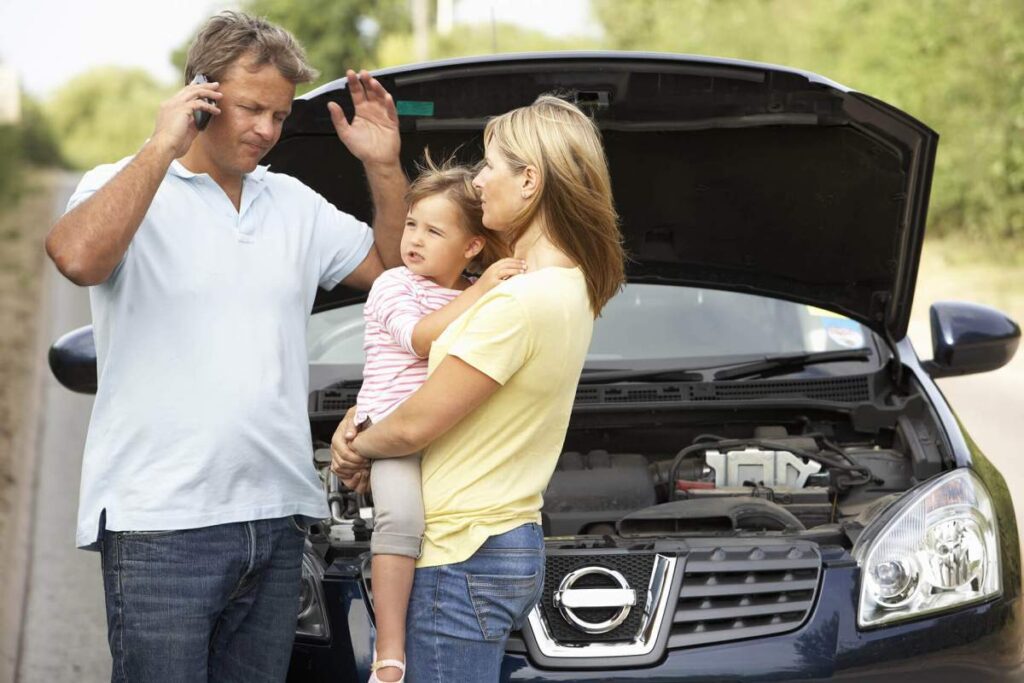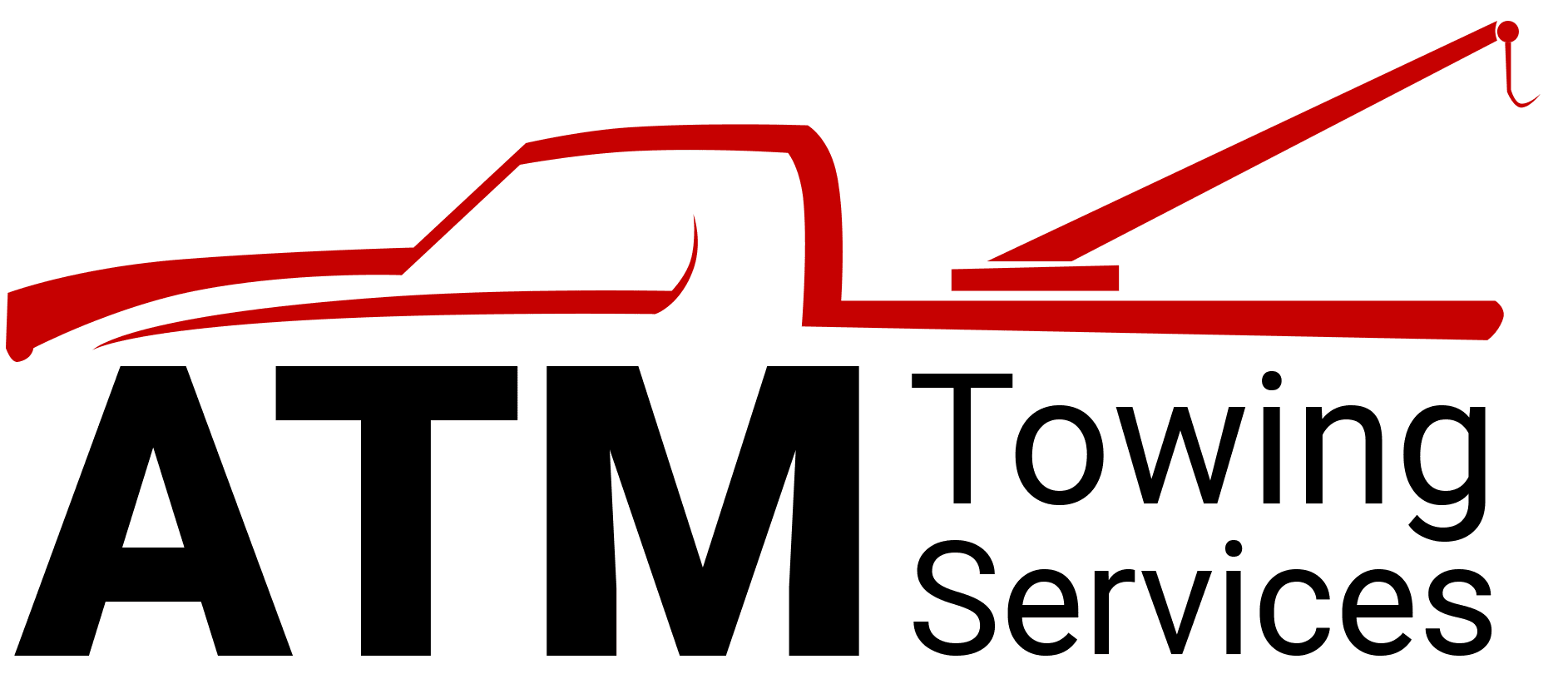Imagine you’re on the road and suddenly faced with a flat tire or a dead battery. That’s when the concept of DIY roadside services comes into play—knowing what you can handle yourself and when to call for professional help. In this guide, we’ll explore the world of roadside services and help you understand when to take charge and when to seek assistance, all in the name of staying safe and getting back on the road quickly.

Understanding Roadside Services
Roadside services cover a range of situations that can happen while you’re driving. Think flat tires, dead batteries, and even running out of fuel. Knowing the basics of emergency roadside assistance and how to deal with common issues is essential. Being prepared with this knowledge can save you time, money, and stress.
When familiar with straightforward solutions like changing a flat tire or jump-starting a battery, you become more self-reliant and less anxious during unexpected situations.
DIY Roadside Service: Know Your Limits
Not every scenario necessitates dialing for assistance. Some tasks, such as replacing a flat tire or recharging your battery, are doable. These are often low-risk DIY projects that require no specialist knowledge.
Having the right tools is crucial for DIY roadside success. Keep a spare tire, jack, lug wrench, and jumper cables in your vehicle. Understanding the steps and following them is equally important. Your vehicle’s manual is your guide, and there are plenty of online resources to help you master each procedure.
When to Call for Towing
While DIY solutions have their time and place, there are instances when your car needs more than a quick fix. Recognizing when to seek professional towing services is crucial for your safety and the safety of others on the road.
Serious Situations: In severe accidents where your vehicle is significantly damaged, it’s best to call for help. Towing professionals specialize in accident removal and recovery, ensuring your car is properly cared for.
Engine Trouble: If your vehicle experiences engine issues that prevent it from running safely, attempting DIY repairs by the roadside isn’t recommended. Car towing experts can transport your vehicle to a reliable mechanic.
Safety Compromised: Rapid professional aid is necessary when safety is jeopardized, such as being stranded on a major highway or in hazardous weather conditions. In cases like running out of fuel in such situations, contacting a towing service that provides fuel delivery can be a real lifesaver.
Assessing Your Safety
Your safety should always come first. Before attempting any DIY roadside service, ask yourself these questions:
- Traffic Conditions: Is the road busy? Will you be a hindrance to traffic?
- Weather: Is the weather favorable for attempting repairs? Rain, snow, or extreme heat can make DIY efforts risky.
- Personal Capability: Do you have the skills and confidence to complete the task safely?
- Tools: Do you have the necessary tools and equipment?
- Visibility: Is your location well-lit and visible to other drivers?
Remember, your well-being comes first. If any doubts arise about your safety, it’s better to wait for help rather than risk making things worse.
Benefits of Professional Roadside Services
Getting help from roadside services has a lot of advantages when you’re stuck with car problems. These experts have special tools, and they know exactly what to do. They come quickly when you need them, which is very helpful.
The people working in roadside services are trained to fix car issues. They’re like car doctors who know how to make things better. They use special tools to tow your car or fix flat tires, dead batteries, and other problems.
When you call them, they show up fast. This quick help is essential because being stuck by the side of the road can be scary and dangerous. Roadside services make sure you don’t have to wait for too long.
These professionals also keep you protected. They take care of your car to prevent further damage. They take care of everything so you don’t have to.
Knowing that experts are handling your car troubles helps you feel calm. You don’t need to stress because you trust they’ll do well. It’s like having a friend who knows much about cars and can help you.
Remember, roadside services are helpful when your car gives you trouble. They have special tools, know what they’re doing, come quickly, and keep you safe. It gives you peace of mind, like having a helpful friend around.
Roadside Service Essentials Kit
A roadside service essentials kit in your vehicle can be a lifesaver when encountering unexpected driving problems. Here’s a checklist of essential items to keep in your car for DIY roadside services:
- Spare Tire: A properly inflated spare tire is crucial if you get a flat tire. Make sure it’s in good condition and ready to use.
- Jack and Lug Wrench: These tools are needed to lift your car off the ground and remove the flat tire. Learn how to use them before you need them.
- Jumper Cables: If your car’s battery dies, jumper cables allow you to jump-start your vehicle using another car’s battery.
- Flashlight: A flashlight is handy, especially at night. It helps you see what you’re doing and alerts other drivers to your presence if you’re stuck on the side of the road.
- Basic Tools: Keep a small toolkit with essential tools like a screwdriver, pliers, adjustable wrench, and utility knife. These tools can be helpful for minor repairs and adjustments.
- Reflective Warning Triangles or Flares: These items make you more visible to other cars and alert them to your presence, which is especially important if you’re stopped on a busy road.
- Tire Changing Supplies: Besides the spare tire, consider carrying tire-changing essentials like gloves, tire sealant, and a tire pressure gauge.
- First Aid Kit: Accidents can happen, and having a basic first aid kit on hand can be helpful in case of minor injuries.
- Emergency Contact Information: Keep with you a list of emergency phone numbers, including roadside assistance, a towing company, and family or friends.
- Bottled Water and Snacks: Staying hydrated and having some non-perishable snacks can be vital if you’re waiting for help for an extended period.
- Blanket or Warm Clothing: In cold weather, having a blanket, extra clothing, or a jacket can help you stay warm if you’re stranded.
- Mobile Phone Charger: A fully charged mobile phone can be an emergency lifeline. Keep a car charger handy.
- Owner’s Manual: Your car’s manual can guide troubleshooting and using specific tools.
- Pen and Paper: These simple items can help leave notes or exchange information in case of an accident.
Remember, the purpose of this kit is to assist you in minor emergencies and give you time to seek professional help if needed. Check and maintain the items in your roadside service basics kit regularly to ensure they are in good working order when needed.
Takeaways
It’s wise to have a roadside service kit with essential tools for minor car troubles. But remember, knowing when to ask experts for help is critical. It’s time to call for professional service when things are beyond your skills, like complex engine issues.
They’re not just about towing – they also help with equipment hauling, construction services, local hauling, and even motorcycle/off-road vehicle towing. It’s about staying informed and making the right choice for a smooth journey. At ATM Towing Services, we provide fast, easy, and safe Dallas, TX, towing services for your vehicle to get you out of any inconvenient or [potentially] risky situation as soon as possible. We also provide 24/7 emergency towing services, so no matter the hour, if you are trapped in a potentially dangerous situation with nowhere to go, give us a call at (469) 547-5721. Visit our social media for more details.
Related Articles:
The Importance of 24-Hour Tow Services: Ensuring Safety and Convenience
Seeking Cheap Towing Services Near Me? Choose Quality First
Choosing the Right Tow Truck Service: 7 Factors to Consider
